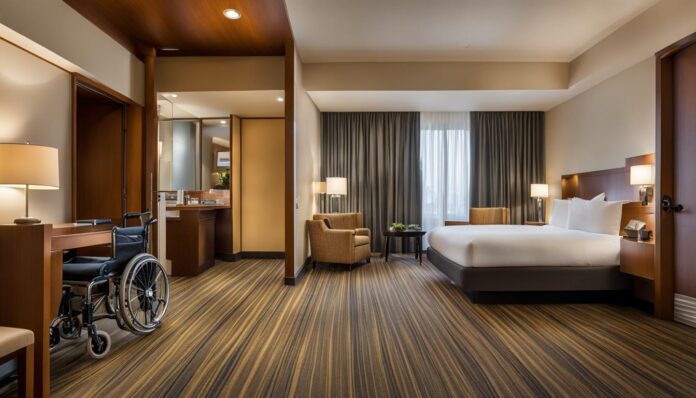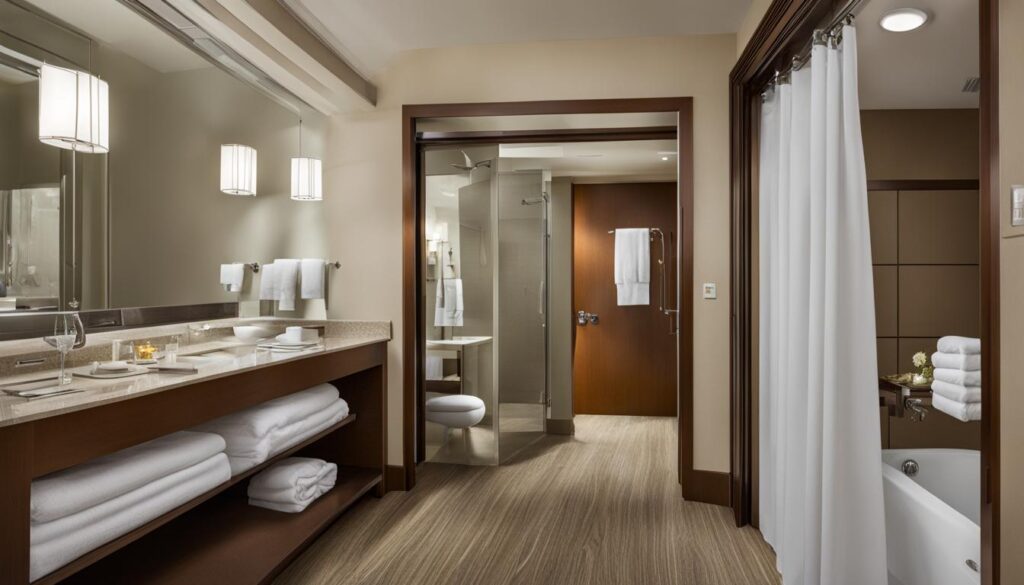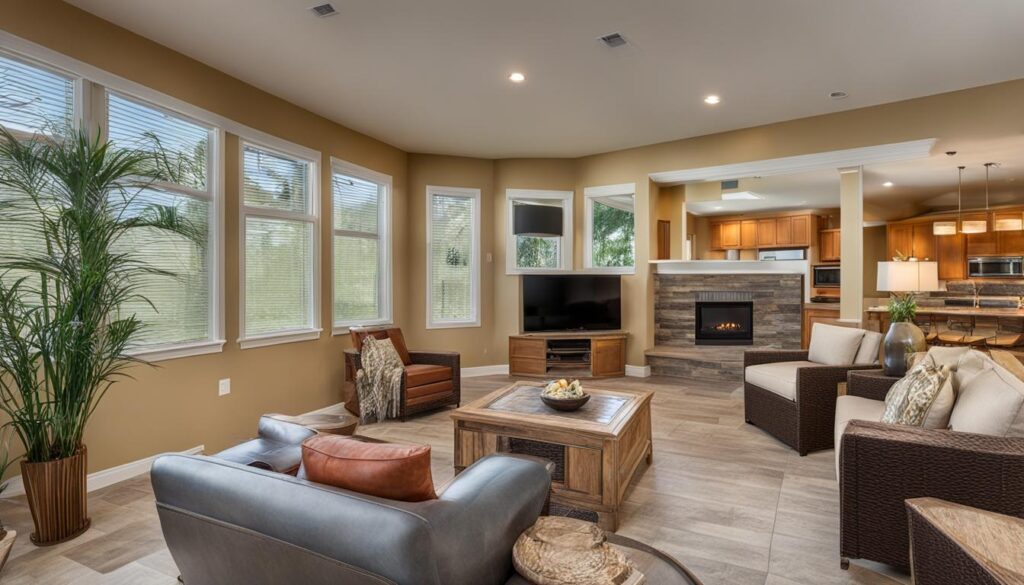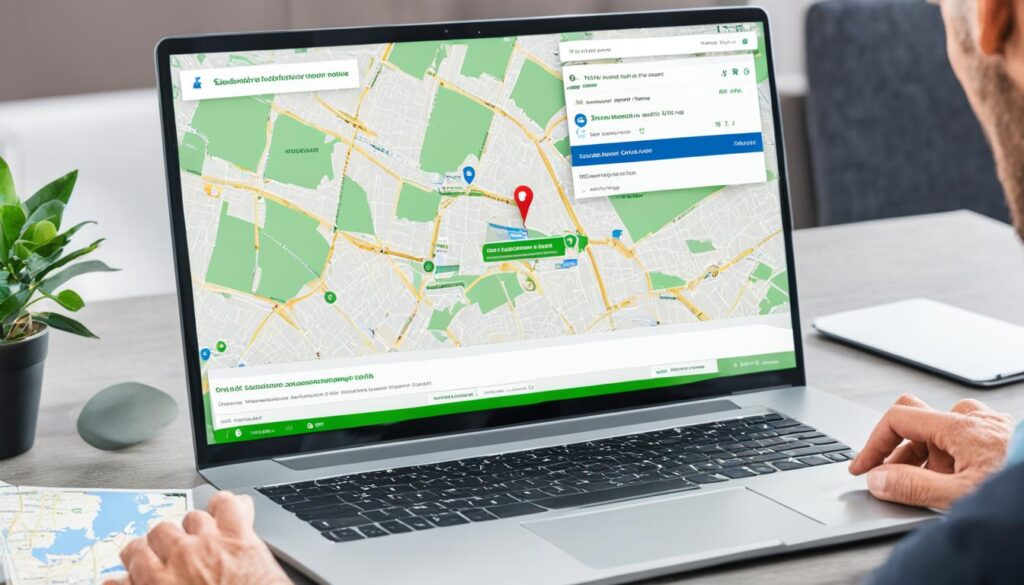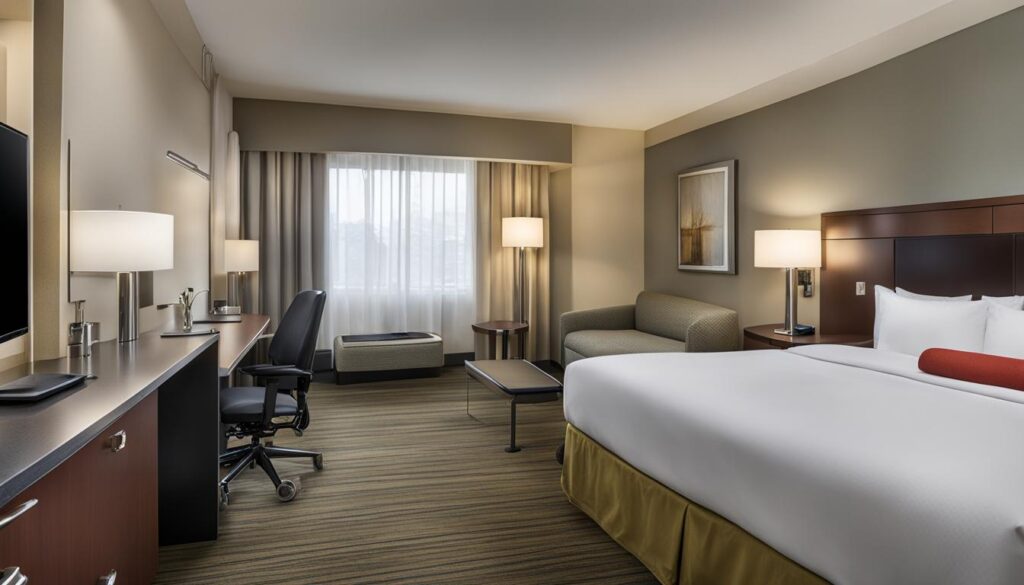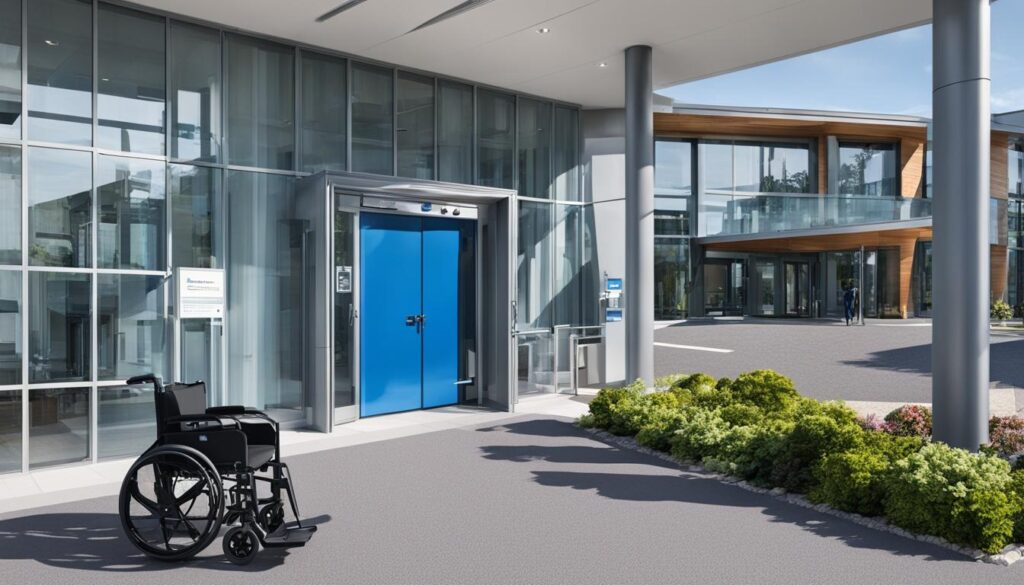Traveling is a great way to explore the world and create lasting memories. However, finding suitable travel accommodations can be a challenge, especially for those with disabilities. How can I find travel accommodations accessible for people with disabilities? It’s a question that may arise when planning your next trip. Fortunately, there are a variety of accessible travel accommodations available that can cater to your specific needs.
Inclusive travel accommodations are designed to ensure that everyone can have a comfortable and enjoyable travel experience. These accommodations offer a range of features that cater to the needs of people with disabilities, including wheelchair accessibility, disability-friendly amenities, and much more.
In this article, we will explore the different types of accessible lodging options available and provide tips on how to find them. Whether you prefer to stay in a hotel, vacation rental, or other type of accommodation, we will help you navigate the world of accessible travel accommodations.
So, if you’re looking for travel accommodations for people with disabilities, keep reading to discover how you can make your next trip a comfortable and inclusive one.
Understanding Accessibility Requirements
When it comes to finding travel accommodations for individuals with disabilities, it is crucial to understand the varying accessibility requirements that may exist. For example, someone who uses a wheelchair may need wheelchair accessible accommodations that include features such as roll-in showers, grab bars, and wide doorways.
Other individuals with disabilities may require disability-friendly accommodations such as sensory-friendly rooms for those on the autism spectrum or accommodations for individuals with visual impairments. Therefore, it is important to research and find disability accessible accommodations that meet the specific needs of each individual.
There are various accessible lodging options available, including hotels and vacation rentals. Many hotels offer wheelchair accessible accommodations, while vacation rentals may have unique accessibility features such as ground-floor entrances or accessible pools.
It is essential to keep in mind that accessibility needs may vary based on the individual’s disability. Therefore, it is recommended to check with the accommodation providers directly about their accessibility features and verify that they meet your specific needs. Reading accessibility reviews and ratings from other travelers with disabilities can provide valuable insights as well.
Examples of Accommodation Requirements:
| Disability Type | Accessibility Requirements |
|---|---|
| Physical Disabilities | Wheelchair accessible accommodations, roll-in showers, grab bars, wide doorways |
| Visual Impairment | Accommodations such as braille signs, closed captioning, audible fire alarms, and large print information |
| Hearing Impairment | Accommodations such as closed captioning, TTY phones, and visual fire alarms |
| Sensory Processing Disorders | Accommodations such as sensory-friendly rooms, rooms away from high traffic areas, and noise-cancelling headphones |
It is important to prioritize the accessibility of your travel accommodations, as it can greatly impact the overall travel experience for individuals with disabilities. By understanding accessibility requirements and researching accessible lodging options, you can ensure a comfortable and inclusive travel experience.
Researching Accessible Hotels
If you’re in search of accessible lodging options, it’s important to do your research and find hotels that cater to the needs of people with disabilities. To ensure that your travel experience is comfortable and stress-free, here are some tips and strategies for finding accessible hotel rooms:
Check for Wheelchair-Accessible Rooms
When making your reservation, be sure to inquire about wheelchair-accessible rooms. These rooms should come equipped with the necessary features to accommodate individuals with disabilities, such as wider doorways, grab bars, and roll-in showers.
Look for Accessibility Amenities
Hotels that are accessible often offer additional amenities to cater to the needs of their guests with disabilities. Some of these amenities may include wheelchair rentals, on-site medical equipment, and accessible dining options.
Research online for Accessibility Features
Check online reviews to see what other travelers with disabilities have experienced at the hotel you’re considering. Many hotel listings include information on their websites detailing the accessible features they offer. You may also want to check specialized disability travel websites like WheelchairTravel.org, that provide reviews, pictures, and information on wheelchair accessible accommodations, or Booking.com that offers filters for accessible accommodations options.
By taking these steps, you can ensure that you find wheelchair accessible accommodations with the necessary features to accommodate you during your stay.
Exploring Accessible Vacation Rentals
If you’re looking for a unique and accessible vacation experience, consider booking an accessible vacation rental. With disability accessible accommodations, you’ll have more freedom to make yourself at home while enjoying a comfortable stay. When searching for accessible lodging options, keep in mind the following tips to help you find the best vacation rental for your needs:
1. Prioritize your needs
Think about your accessibility requirements and prioritize which amenities are most important to you. This might include wheelchair accessibility, accessible bathrooms, or specific equipment like a shower chair or hospital bed.
2. Research your options
Many vacation rental websites now feature filters for accessible vacation rentals, so take advantage of them. Look for properties that provide details on their accessibility features, especially those that show photos of the space with wheelchair accessibility in mind.
TIP: Don’t hesitate to reach out to the property owner or manager to ask additional questions about their accessibility features.
3. Consider the location
Look for a location that is wheelchair accessible and close to the activities you want to enjoy during your vacation. Consider researching the surrounding area to ensure there are accessible restaurants, attractions, and transportation options nearby.
4. Read reviews
Reviews from other travelers with disabilities can be valuable sources of information for finding the perfect accessible vacation rental. Look for reviews that mention the accessibility features and how comfortable they were during their stay.
5. Confirm your reservation
Before finalizing your reservation, communicate with the property owner or manager to confirm that the accessible features of the property meet your needs. Make sure to get any special requests or accessibility requirements in writing to avoid confusion during your stay.
Utilizing Accessible Travel Websites
When searching for accessible travel accommodations, it can be challenging to know where to start. Luckily, there are several travel websites that specialize in providing information on travel accommodations for people with disabilities.
These websites offer a range of services to help you find accessible accommodations, including customized search options based on your specific needs and preferences. They often provide detailed information on the accessible features of each accommodation, such as wheelchair accessibility, bathroom grab bars, roll-in showers, and other essential amenities.
One such website is Booking.com’s Accessible Travel, which features a user-friendly interface and a diverse selection of accessible lodging options. Another popular option is Airbnb’s Accessibility page, providing information on accessible vacation rentals and experiences worldwide.
Utilizing these accessible travel websites can save you significant time and effort in finding accommodations that suit your needs. It can also help you discover unique and inclusive travel accommodations that you may not have known existed.
Checking Accessibility Reviews and Ratings
When searching for travel accommodations that cater to your accessibility needs, it can be incredibly helpful to read reviews and ratings from other travelers with disabilities. These firsthand accounts can provide valuable insight into the accessibility and overall comfort of accommodations and can help you make an informed decision when choosing where to stay.
When looking for accessible lodging options, keep an eye out for reviews that mention accessibility features such as wheelchair ramps, grab bars in the bathroom, and disability-friendly amenities. Reviews can also give you a sense of the level of customer service and attentiveness to accessibility needs at different accommodations.
There are several online sources for accessibility reviews and ratings, such as TripAdvisor and Booking.com. Additionally, many hotels or vacation rental platforms allow guests to rate the accessibility of their accommodations directly on their website or booking platform.
Remember, while it’s important to take accessibility reviews and ratings into consideration, everyone’s accessibility needs are unique. Be sure to also do your own research and consider your individual needs and preferences when choosing travel accommodations.
“I always make sure to read accessibility reviews before booking a hotel. It’s great to get an idea of what kind of accessibility features are available and how helpful the staff is. I’ve had great experiences thanks to the recommendations of other travelers with disabilities.”
Contacting Accommodation Providers
When searching for accessible travel accommodations, it’s important to communicate directly with accommodation providers to ensure that their amenities and facilities meet your specific needs. By contacting the hotel or vacation rental directly, you can ask questions and receive clear answers before making a reservation.
When contacting accommodation providers, be sure to ask specific questions on areas such as the availability of wheelchair accessible accommodations, the type of disability-friendly amenities offered, and the proximity of accessible attractions. Also, inquire specifically about the services provided to guests with disabilities.
It’s important to communicate your needs as explicitly as possible, so accommodation providers can provide you with accurate information. Remember to ask for clarification if needed, and take notes or record the call to make the information easier to remember.
“When I traveled last summer, I contacted a hotel directly to inquire about their accessible accommodations. The staff were very helpful in describing in detail the features available, such as roll-in showers, grab bars, and wheelchair ramps. Talking to them reassured me that I would be able to accommodate my needs during my stay.”
Sample Table: Questions to ask Accommodation Providers
| Question | Why it’s important |
|---|---|
| Do you have wheelchair accessible rooms available? | Allows you to confirm that the accommodation meets your mobility needs |
| What type of disability-friendly amenities do you offer? | Enables you to determine if the accommodation meets your individual requirements |
| Are there any accessible restaurants, shopping, or attractions nearby? | Helps you plan your itinerary and determine if the location accessible for you |
| What additional services are provided to guests with disabilities? | Allows you to evaluate the level of service and support offered |
By following these tips and asking the right questions, you can ensure that your travel accommodations meet your accessibility needs.
Considering Additional Needs and Preferences
When choosing travel accommodations for people with disabilities, it’s crucial to consider additional needs and preferences beyond just accessibility. For instance, if you have specific dietary requirements, you may need to find accommodations that offer meal options or are located near restaurants that cater to your needs. You should also consider the proximity of medical facilities in case you require emergency medical attention.
Another important factor to consider is whether the accommodations offer amenities that make your stay more enjoyable and comfortable. For example, if you enjoy swimming, you may want to look for accommodations with an accessible pool. If you require the use of medical equipment, you may need to prioritize accommodations that offer medical equipment rentals or already have the necessary equipment on-site.
By taking these additional needs and preferences into account, you can find travel accommodations that not only meet your accessibility requirements but also make your travel experience as enjoyable and comfortable as possible.
Understanding Legal Requirements for Accessibility
It is essential to understand the legal requirements for accessibility when it comes to finding travel accommodations for people with disabilities. The Americans with Disabilities Act (ADA) sets the standard for accessibility guidelines in the United States. It applies to all businesses and establishments, including hotels, motels, and other lodging facilities.
The ADA requires that all accommodations be accessible to people with disabilities, including wheelchair users. This includes providing disability accessible accommodations, such as wheelchair accessible accommodations and accessible lodging options. Accommodation providers must ensure that there are no barriers to access, and accommodations must be designed to meet the needs of people with disabilities.
Additionally, there are legal requirements for accessibility regarding communication access. Accommodation providers must ensure that all communication is accessible to people with disabilities, including those who are deaf or hard-of-hearing. This includes providing auxiliary aids and services, such as sign language interpreters or CART services, to ensure effective communication.
| Legal Requirements for Accessibility | Description |
|---|---|
| ADA | Sets the standard for accessibility guidelines in the U.S. |
| Wheelchair Accessible Accommodations | All accommodations must be accessible to people with disabilities, including wheelchair users. |
| Communication Access | All communication must be accessible to people with disabilities, including those who are deaf or hard-of-hearing. |
If you encounter accommodations that do not meet accessibility standards, you have the right to file a complaint with the Department of Justice. The Department of Justice will investigate and take appropriate action to ensure that the accommodations become accessible according to legal requirements.
It is essential to know your rights as a traveler with a disability and understand the legal requirements for accessibility. By doing so, you can ensure that you have access to the accommodations and amenities that you need and deserve when traveling.
Conclusion
Overall, finding accessible travel accommodations for people with disabilities requires some research and planning, but it is well worth the effort. By understanding the varying accessibility requirements, researching hotels and vacation rentals, utilizing accessible travel websites, checking reviews and ratings, and contacting providers directly, you can ensure that your travel experience is comfortable, safe, and enjoyable.
Remember to also consider any additional needs and preferences you may have, such as dietary restrictions or proximity to medical facilities. And don’t forget that as a traveler with a disability, you have legal rights under the Americans with Disabilities Act (ADA).
With so many inclusive travel accommodations available, there’s no reason why people with disabilities shouldn’t be able to explore the world just like everyone else. So next time you’re planning a trip, take the time to find accommodations that are accessible, and enjoy your journey!




























